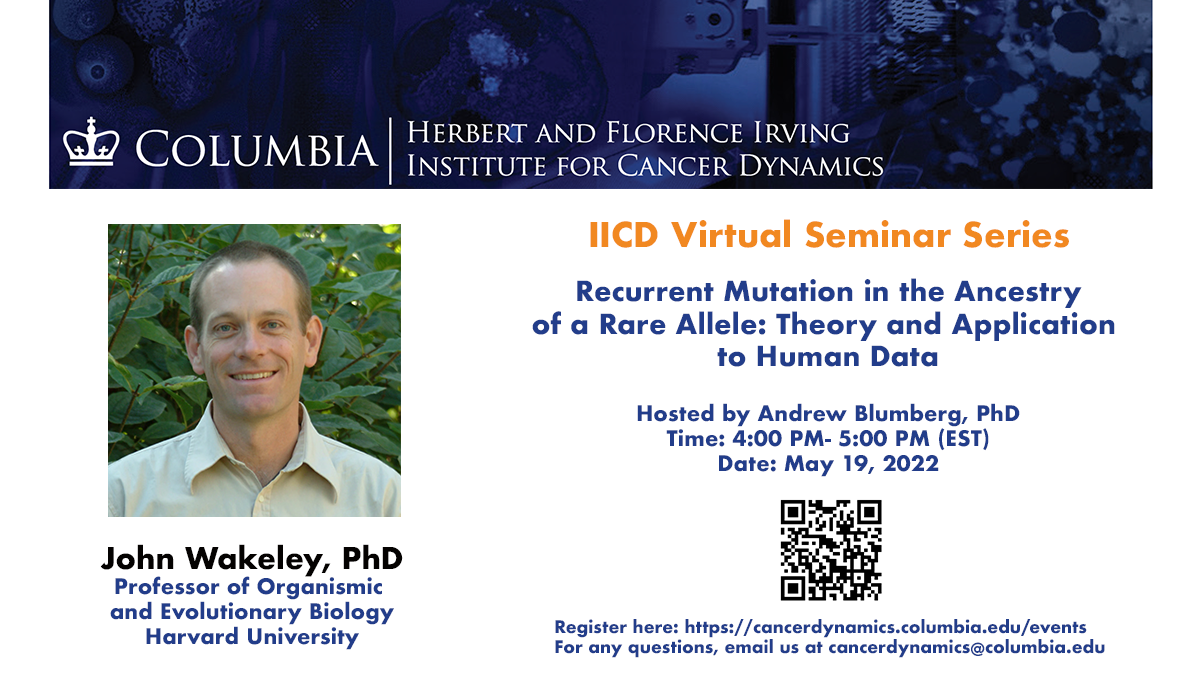The Herbert and Florence Irving Institute for Cancer Dynamics hosts a seminar series on the topic of mathematical sciences underpinning cancer research. The monthly seminars take place on the third Thursday of the month, 4:00-5:00 PM EST. The presentations are held via Zoom and are open to the Columbia community and to researchers outside Columbia University.
On Thursday, May 19th (4:00-5:00 PM, EST), IICD welcomes John Wakeley, PhD, Professor of Organismic and Evolutionary Biology, Department of Organismic and Evolutionary Biology, Harvard University.
To attend the seminar, please register here: https://columbiauniversity.zoom.us/meeting/register/tJ0kcOurqDsiE9QOuOH33zYLRF-TInN8ad6m
Title: Recurrent Mutation in the Ancestry of a Rare Allele: Theory and Application to Human Data.
Co-Authors: John Wakeley (Department of Organismic and Evolutionary Biology, Harvard University); Louis Fan (Department of Mathematics, Indiana University); Evan Koch (Department of Biomedical Informatics, Harvard Medical School; Division of Genetics, Brigham and Women’s Hospital, Harvard Medical School); Shamil Sunyaev (Department of Biomedical Informatics, Harvard Medical School; Division of Genetics, Brigham and Women’s Hospital, Harvard Medical School)
Abstract: Knowledge of mutation processes is fundamental for understanding patterns of genetic variation. Here a population-genetic model of recurrent mutation is developed and used to predict the number of latent mutations in the ancestry of an allele. For populations of constant size, and if the allele is in low frequency in a large sample, the numbers of latent mutations and their sample counts follow the Ewens Sampling Formula. Extensions to growing populations are presented and the results are applied to data from a recent survey of human single-nucleotide polymorphisms.
Bio: John Wakeley is Professor of Organismic and Evolutionary Biology at Harvard University. His research focus is theoretical population genetics. Current projects include studies of human genomic variation, the roles of organismal genealogies in structuring variation, and the evolutionary effects of extreme variation in offspring numbers. He is the author of a popular textbook in mathematical genetics: Coalescent Theory, An Introduction.

